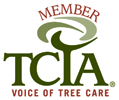
Fort Collins Tree Care Newsletter
Spring Care & Maintenance of your Trees and Shrubs
State Champs: Fort Collins' largest and tallest state champion trees
Thanks in part to Fort Collins' city fathers like Franklin Avery, we have many large and old trees in Fort Collins. Of these old trees (mostly in the Old Town area), twenty-five are Colorado State Record trees. The list includes such trees as: Ohio buckeye, white spruce, red oak, European Larch, sweet gum, sugar maple, English oak and many more.
A comprehensive list of champion trees and locations is provided by the Colorado Tree Coalition.
Bugs, Bugs, No Bugs!!!
With mild winters comes the potential for insect outbreaks in the Spring and Summer. Mountain Pine Beetle populations cycle between low and high populations. It appears that last year's Pine Beetle population was greater than the average year. In order to protect the valuable trees on your mountain property, call us to see if a tree spray is appropriate. Timing is critical for this pest, so don't delay - call now to schedule.
Lawn fertilization and turf pest management will be offered by Fort Collins Tree Care this year. Take advantage of our competitive rates and the above-average service that our trained technicians offer.
Also, it could be a wet Spring, so schedule your apple scab and inkspot treatments now.
How to Become an Intelligent Tree Care Customer
These tips on how to hire a good professional arborist appeared in "Tree Care Industry", a publication of the National Arborist Association
- Check out the arborists listed in the yellow pages; however, don't place much emphasis on the size of the yellow pages ad. Some of the most reputable firms rely almost entirely on word-of-mouth advertising. Look instead for what the ad tells you about the company: number of years in business, professional affiliations, licenses, certifications, etc.
- Avoid companies that advertise "topping", an injurious and unacceptable practice.
- Seek recommendations from people who have had professional tree care work done in the past.
- Be aware that the credentials of someone calling him/herself an arborist can vary widely. Don't just hire someone with a chain saw who knocks on your door! Look for a company that displays the credentials of a professional.
-
When you meet with the arborist:
- Ask to see current certifcates of liability and workers compensation insurance, if applicable.
- Ask for references, and check on the quality of their work and level of service.
- Don't be lured by a bargain, don't pay in advance, and do get another estimate or opinion for the needed work.
- Insist on a signed contract as to cost, dates when work is to be performed, and exactly what is to be done.
- Insist that climbing spikes are used only if the tree is to be cut down because they damage the tree.
- Always ask your arborist questions. Inquire about his/her experience and knowledge. They can also recommend other quality arborists in the area
Stress Factors Cause Tree, Plant Mortality
Research shows that in many cases no one single factor can account for a tree's mortality. Contributing stress factors usually lead to decline and eventual mortality in Colorado's trees and shrubs. Many of these factors are attributed to Colorado's unique weather. Spring and Fall snows, Winter temperatures in the forties to low sixties, winds that can blow for twenty-four hours at a time. Weather combined with poor soil conditions and bad choices of landscape plants can cause plant mortality. Examples of stress factors are: the October freeze of the early 90's that killed many elms along the Front Range; poor Winter water that encourages bore attacks of birch; and mild Winter temperatures that can enhance Cytospora infections of some cottonwoods. Stress factors can combine to ultimately kill your landscape plants. Keep an eye on your plants throughout the year and make mental notes about appearance and growth of important trees and shrubs in your landscape. And remember, we are here to service and help with your plant care needs.
Call us today at 484-3084.
Holistic Plant Health Care: Is it for you?
Plant Health Care (PHC) is a holistic approach to plant care. It incorporates the working understandings of plant biology with the most current plant care techniques available. Plant Health Care focuses on treating trees and not the symptoms. Blanket sprays of chemicals and radical pruning techniques such as topping are falling by the wayside.
Biological, chemical and cultural controls are now used to encourage and maintain landscape plants in the best possible health. Biological and chemical controls used to control damaging pests range from highly sophisticated mock pyrethrums that imitate protective plant chemicals to ladybugs that pray on aphids. The most effective and wise use of these controls is discussed in the "Integrated Pest management" article below.
Cultural controls consist of proper purning, timely feeding and watering, and most important - plant selection, the single most important factor when considering healthy successful landscapes. Help with plant selection is available from your local extension service bulletin, Colorado State University, nurserymen from reputable greenhouses, landscape architects, and experienced, reputable arborists.
Integrated Pest Management: the Other Half of the Story!
Integrated Pest Management (IPM) is a systematic approach to pest management and incorporates many of the Plant Health Care (PHC) philosophies. Using today's technologies, we can control damaging pests and many plant diseases with target-specific chemicals. Soil and trunk injections concentrate chemicals where the pest feeds, protecting valuable predator insects and reducing the arial applications required to control the pests.
Biological controls are useful in some cases but are limited by weather, wind and predatory animals. Correct diagnosis, application timing, and application methods by technicians are critical to successful control. In nature, parasites and predators usually live in balance; however, many urban landscapes have introducted plants with pests that have few natural controls. Things like plant and insect hormones, parasitic insects and bacteria, mechanical controls, good sanitation practices, and plant selection should all be considered when addressing pest controls.
Choose your pest management company carefully; look for good stewardship and advice that makes sense. Caution: Blanket sprays and mystic treatments have no place in today's pest management scheme.
Keys to Plant Selection Along Colorado's Front Range
- Plant hardiness
- Drought tolerance
- Resistance to pests
- Size at maturity and location
- Plant maintenance requirements
Principles of Plant Health Care (PHC)
- Understand plant requirements
- Understand public attitudes
- Understand plant/pest relationships
- Know what you have, inventory and survey of landscape plants
- Monitoring by PHC technicians and home owner
- Make informed pest control decisions
- Integration of IPM with PHC
Residential Lawn Maintenance
If you need residential lawn maintenance, call Kim at Land Shark Lawn Care 567-3908. She is very knowledgeable and can provide for all your lawn maintenance needs.





